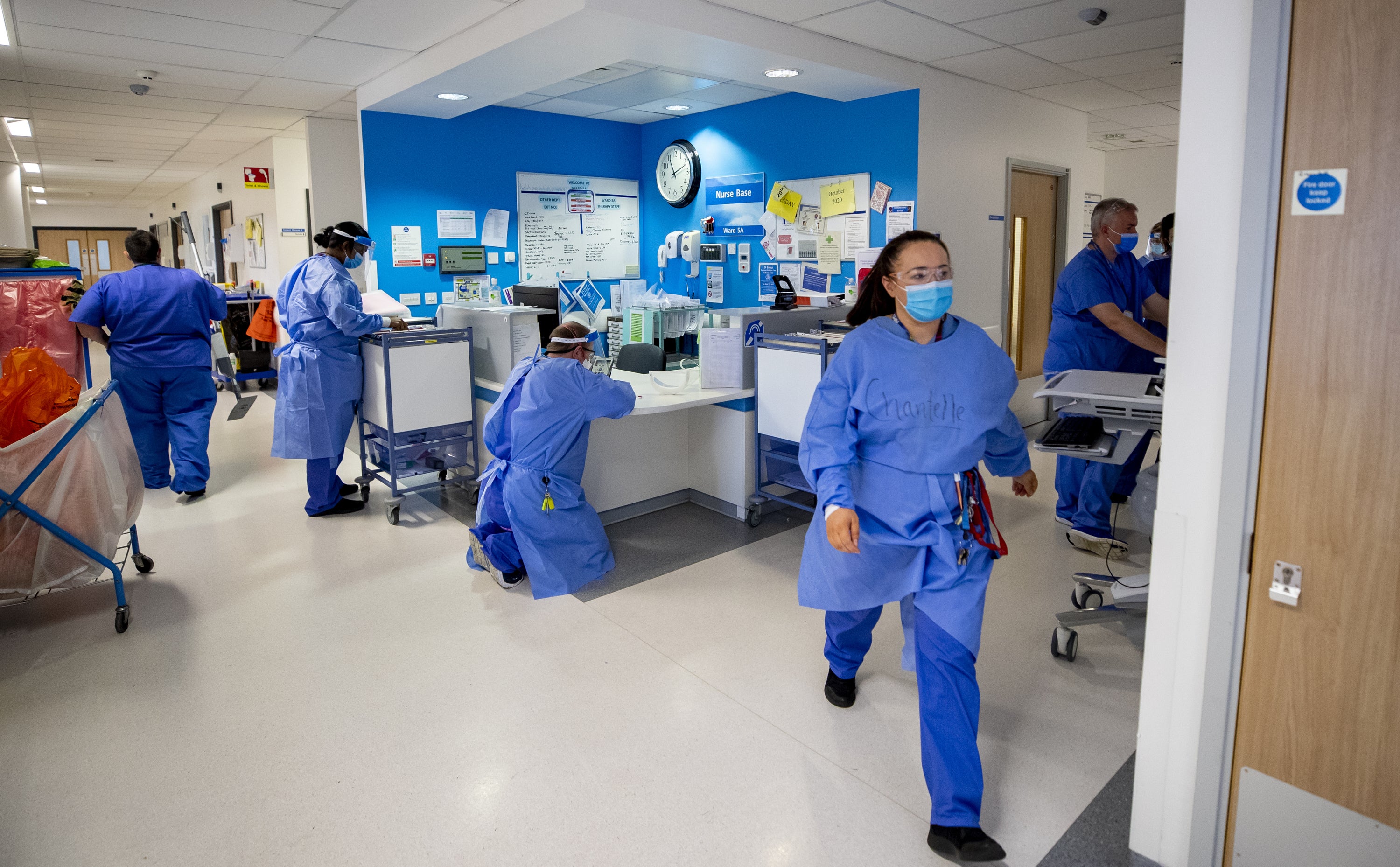‘Burned-out doctors pose risks to patient safety’
Clinicians suffering burnout are twice as likely to be involved in patient safety incidents, a new study suggests.

Your support helps us to tell the story
From reproductive rights to climate change to Big Tech, The Independent is on the ground when the story is developing. Whether it's investigating the financials of Elon Musk's pro-Trump PAC or producing our latest documentary, 'The A Word', which shines a light on the American women fighting for reproductive rights, we know how important it is to parse out the facts from the messaging.
At such a critical moment in US history, we need reporters on the ground. Your donation allows us to keep sending journalists to speak to both sides of the story.
The Independent is trusted by Americans across the entire political spectrum. And unlike many other quality news outlets, we choose not to lock Americans out of our reporting and analysis with paywalls. We believe quality journalism should be available to everyone, paid for by those who can afford it.
Your support makes all the difference.Patients being treated by burned-out doctors may face additional risks when they receive care, a new study suggests.
A new review concluded that doctors experiencing burnout are twice as likely to be involved in patient safety incidents such as medication errors and “suboptimal care”.
The link between burnout and patient safety incidents was highest among younger doctors and emergency medicine physicians.
Patients are also less likely to be satisfied with the treatment provided by burned-out doctors.
Burnout is a strong predictor for career disengagement in physicians as well as for patient care
The study, published in the BMJ, comes as senior health leaders in the UK have raised serious concerns over burnout among doctors working in the NHS.
On the back of dealing with the Covid-19 pandemic, doctors are now facing record waiting lists in hospitals while GPs try to keep waiting patients well in the community.
Even before the pandemic doctors were dealing rising demand and increasingly complex cases as patients live longer, many with multiple health conditions.
And a damning report from the influential Health and Social Committee of the House of Commons, published last summer, found NHS and social care staff burnout has reached an “emergency” level and poses a risk to the future of services.
Burnout is defined as a syndrome related to emotional exhaustion, a sense of reduced personal accomplishment, and a sense of cynicism and “detachment” from work.
The new study, led by academics at the University of Manchester, set out to examine the effects of burnout on a global scale.
They conducted a systematic review of all available research on doctor burnout.
They analysed statistics from 170 studies, involving more than 239,000 doctors, and found:
– Burnout was linked to an almost four-fold decrease in job satisfaction and medics were more likely to regret their career choice.
– They were more than three times as likely to have thoughts or intentions to leave their job.
– Overall physician burnout doubled patient safety incidents.
– The association between burnout and patient safety incidents was greatest in physicians aged 20-30 and people working in emergency medicine.
– As burnout increased, low professionalism was twice as likely, as was patient dissatisfaction.
– Burnout and poorer job satisfaction was greatest in hospital settings, among doctors aged 31-50 and among those working in emergency medicine and intensive care.
Investment strategies to monitor and improve physician burnout are needed as a means of retaining the healthcare workforce and improving the quality of patient care
The authors concluded: “Burnout is a strong predictor for career disengagement in physicians as well as for patient care.
“Moving forward, investment strategies to monitor and improve physician burnout are needed as a means of retaining the healthcare workforce and improving the quality of patient care.”
Commenting, Dr Latifa Patel, chair of the British Medical Association’s representative body, said: “Burnout is not just a question of personal wellbeing or career satisfaction – it is a matter of patient safety.
“Tired, undervalued and understrength doctors cannot work to the best of their abilities and these figures throw into disturbing relief what that means for patient care.
“Doctors want to do the best by their patients but that is becoming increasingly difficult as they tackle record backlogs, regularly missing rest breaks, going without food breaks, and working themselves to their very limit often at the detriment to their own health.
“Action must be taken and fast if we are to protect the workforce and patients are to get the care they deserve.
“The data here and from the recent GMC National Training Survey suggest this is particularly an issue among junior doctors, and the Government can take a first step by meeting with junior doctors to address the unacceptable 26% real terms cut to pay they have suffered since 2008, which has left them feeling demoralised, undervalued and in many instances forced them to leave the NHS.
“The tragic consequences of burnout have their root in the workforce crisis, and if the NHS cannot recruit or retain its staff, the vicious cycle of poor patient care will only accelerate.
“Only a full plan to restore the NHS workforce, and a pledge to listen to what doctors are telling the Government about their work conditions, will be capable of tackling this burnout epidemic and the horrible consequences we see here.”
Dr Rob Hendry, medical director at Medical Protection Society (MPS), added: “When doctors are exhausted and burnt out, it is not only damaging for their personal wellbeing but also jeopardises patient care.
“If we don’t act now sadly many more passionate and committed doctors will become burnt out and disillusioned, others will choose to leave the medical profession, resulting in a loss of expertise for patients and even more pressure on stretched resources.”